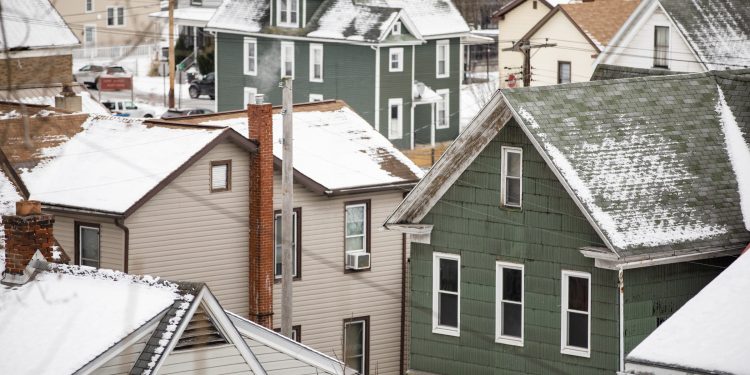Spotlight PA hosted a recent event discussing the status and history of the popular Whole-Home Repairs Program.
Charlotte Keith of Spotlight PA
Spotlight PA is an independent, nonpartisan, and nonprofit newsroom producing investigative and public-service journalism that holds power to account and drives positive change in Pennsylvania. Sign up for our free newsletters.
HARRISBURG — A new Pennsylvania program to help homeowners with the cost of repairs launched last year with $125 million in federal pandemic aid. It’s one of the largest state investments of its kind in years.
Even so, overwhelming demand has led to long waitlists in many counties, Spotlight PA reported in December. And despite bipartisan support in Harrisburg, additional funding for the Whole-Homes Repair Program included in last year’s state budget was left out of the final deal.
At a virtual event on Feb. 21, panelists discussed the program’s first year and the prospects of more funding.
Here are five key things to know about the panel discussion, which can be viewed in full online.
Aging housing stock is a statewide problem
Pennsylvania has some of the oldest houses in the U.S and the need for repairs is an issue all across the state, said state Sen. Nikil Saval (D., Philadelphia), who introduced the legislation to create the program.
Almost 60% of homes in Pennsylvania were built before 1970, according to a recent state report that found the number of uninhabitable vacant units was rising.
It’s a problem shared by areas of the state that otherwise have little in common, geographically or politically, Saval said. That’s part of the reason the program was able to win bipartisan support in Harrisburg. “We felt like this was a thing we could unite our commonwealth around.”
Scores of homeowners need help with repairs
Angelo Ortega’s basement flooded when the remnants of Hurricane Ida swept across the Lehigh Valley. Then came mold and mildew. A member of Make the Road Pennsylvania, a grassroots group that advocated for the program’s creation, Ortega was approved to receive help. But limited funding left out many other homeowners, said Armando Jimenez-Cabarin, the organization’s deputy organizing director.
As climate change makes extreme weather more likely, more homeowners are going to be dealing with damage from things beyond their control, he said.
Rules around the home repair grants vary from county to county
While the broad outlines of the program are set by state law, the specifics are left up to each of the participating 64 counties. (Three — Adams, Perry, and Sullivan — did not apply to receive the funding from the state.)
County administrators have taken different approaches to setting eligibility, prioritizing applicants, and determining the maximum amount of funding a homeowner can receive.
“You could take it the way locally that would fit your needs,” said Dave Young, executive director of Schuylkill Community Action.
Young said the program’s flexibility sets it apart from other home rehab initiatives his agency runs, which often involve more red tape.
Last-minute horse-trading in Harrisburg tanked funding in 2023
Last year’s state budget, signed by Democratic Gov. Josh Shapiro in August, included another $50 million for the Whole-Home Repairs program. Spending that money, however, required another round of enabling legislation. Funding for the repair program was not included when those additional bills finally passed after a months-long standoff.
“In the last-minute flurry of trying to put things on the table, this fell off,” Saval said.
Shapiro proposed $50 million for the program again in his budget proposal this year, saying, “we can’t leave struggling homeowners out to dry.”
BEFORE YOU GO… If you learned something from this article, pay it forward and contribute to Spotlight PA at spotlightpa.org/donate. Spotlight PA is funded by foundations and readers like you who are committed to accountability journalism that gets results.




